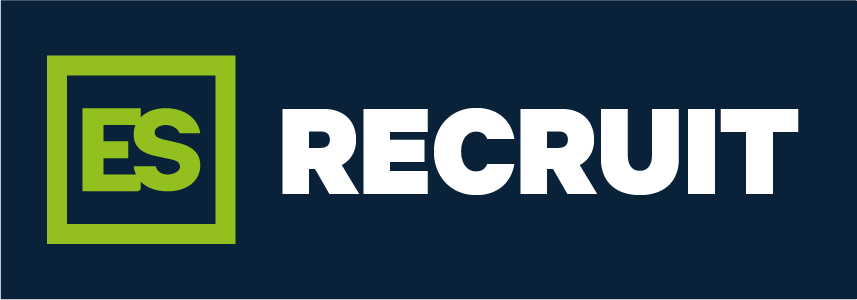Make sure that you make a great impression at your job interview with our top tips on preparing, what to expect and showing what you have to offer your potential future employer.
But first, why are job interviews so important?
An interview is an employer's first chance to meet you face-to-face and get an idea of what you are like as a person. This is also the first chance both you and the interviewer will get to make sure that the company and job are right for you both from a skills and cultural point of view.
Where do interviews happen?
Job interviews can take place either face-to-face, over the phone or via video interview. Since the Covid 19 pandemic, a larger proportion of interviews have happened online. If you are taking part in an online interview the likeliness is it will be via software like Zoom, Teams or Skype.

What are the different types of job interviews?
Employers may ask you to participate in one of several different interviews and you should prepare accordingly for the one you attend.
One-to-one
This would be with one person, usually face to face and is more common in smaller businesses, although some larger companies will still hold one-to-one interviews.
Panel Interview
A panel interview is where two or more people will interview you. Be sure to look at and make eye contact with all the interviewers when speaking. You may also be asked to do some sort of presentation in this kind of interview.
Group Interview
Group session interviews are usually held as part of an assessment day with other candidates, usually when there are multiple positions that the company is looking to fill.

What are the different types of interview questions
Different employers will use different interview techniques and types of questions when interviewing. They may tell you beforehand how they plan on leading the interview; some might even talk about it on their website. Do your research, and if in doubt, ask.
Competency-Based interview
This will focus on things you can do, and you will need to give answers showing the interviewer that you have the skills to do the job. If you can’t think of an example from a work experience point of view look further afield and pull something from your other experiences.
Technical Questions
These will be designed to test your technical knowledge and understanding of certain work processes. This type of interview is common in industries like Engineering, Manufacturing and the Sciences.
Strength-Based Interview
This type of interview questioning is based on what you do well or enjoy doing. This could be working in a team, working to deadlines, thriving under pressure etc.
Situational questions
How would you react if A, B or C happened? Interviewers will use this type of question to see how you would solve a problem, make decisions, or work with a teammate.
Values-Based
This type of interview question is designed to determine if you fit with the company's values and culture.
There are many other types of interview questions and some interviewers may use more than one style of questioning, so it is best to prepare for as many as you can.
.jpg)
Get prepared for your interview.
Right time, right place.
First things first, the interviewer will probably offer you a time and date for the interview. If this works for you, great. If not, you’ll need to go back with a solid reason why not and suggest a time and date that you can attend and see if it works for them. Make sure that you get plenty of sleep the night before your interview so you are fresh and prepared for the day.
Know where you are going.
Make sure you know where you are going and how to get there. If you are driving, make sure you can park, and if using public transport, look ahead at timetables and routes so that you can plan accordingly. You’re going to want to arrive 5-10 minutes prior to the time of your interview.
Research, research, research!
Read through the job description thoroughly and make sure that you are 100 percent clear on the skills and qualities that the interviewer is looking for. Go to the company's website and ensure that you know what they do, who they do it for, their products and future plans if this information is available.
Dress To Impress
Now you're going to meet your prospective employers face to face for the first time; they've probably already checked you out online, so let's impress them. Before a syllable is uttered or hand-shaken, your interviewer will have formed an impression on you based on your appearance. That's just human nature. Your job is to make sure it's the right impression. We've written a great blog on this topic you can read it here.
Have some answers ready.
Go over your CV and try to pick out the points that your interviewer may ask you about. Now try to come up with some examples of how you can demonstrate that to them. Use the STAR Method to show that you have the right skills, personal qualities and experience. Read more about the star method here
Have some questions ready!
A job interview shouldn't just be a one-way grilling. It is also your chance to ask any questions that you have about the job, the company and its culture. We’ve written a whole blog on just this topic; read it here.
Before you go into the interview.
Before you go into the interview make sure that you have turned off your mobile phone, take a moment to compose yourself and make sure that you are calm and prepared for your interview.

The Interview.
Here it is, the main event, what all this preparation has been for. Although you may feel like you have prepared to go ten rounds in the ring with all the work you have done, a job interview should actually be quite a pleasant experience. Here are some tips to make sure you smash it.
Be polite, smile and greet your interviewer by introducing yourself and giving a handshake.
Listen fully to the questions that the interviewer asks before beginning your answer.
If you don't hear or understand a question ask the interviewer to repeat the question or explain it further.
Remember the STAR method when giving answers.
Be positive about your previous experience and show that you have learned from any difficult situations.
Don’t badmouth previous employers; it does not look good.
Be assertive with your answers.
Always be honest
Make sure that you use the opportunity to ask questions.
At the end of the interview, make sure that you thank your interviewer, ask them about the next steps, and let them know that you are looking forward to hearing from them.

After The Interview - What’s next?
Accepting the job.
If you are offered the job, make sure to let the company know if you want to accept their offer and agree on when you can start. Make sure to ask what you will need for your first day. You will also have to speak to your current employer, if you have one, to hand in your notice. We’ve written a piece on how to accept a job offer the right way; you can read it here.
Rejecting the offer.
If, after sitting down and weighing up the options, you do not want to accept a job offer, you need to let the company know as soon as you can. Make sure that you reject the offer in a polite manner and don't burn any bridges, as you may want to work there in the future. We've written a great piece on this that you can read here.
And If you don’t get offered the job?
If you don’t get offered the position ask for feedback. Reflect on what went well and things that didn't and use it as a learning experience. Read more on how to use your rejections to your advantage here.
Tools to help with interview practice.
The following tools will help you practise your interview technique and give you feedback as you go to help you improve.
Interview Warmup by Google
https://grow.google/certificates/interview-warmup/
This is an AI-based platform to help you practice interviewing. Asks questions, it transcribes verbal responses in real time and uses ML to give feedback.
Linkedin Interview Prep
https://www.linkedin.com/interview-prep/assessments/urn:li:fsd_assessment:(1,a)/question/urn:li:fsd_assessmentQuestion:(10011,aq11)/
This includes LinedIn’s ‘common questions’ database. This tool also uses AI to analyze your answers; you can also record yourself on video.
Interview Buddy
https://interviewbuddy.in/
This site allows you to create a profile and choose a mock interview time slot. You will receive a curated list of prep materials for your target company and get feedback, and a recording of your practice interview.
The key to giving a good interview is practice.
Make sure you dedicate the time to practice and give yourself enough time to improve the areas that you need to.
Happy Interviewing.









